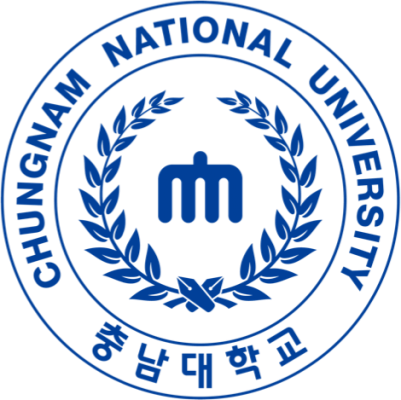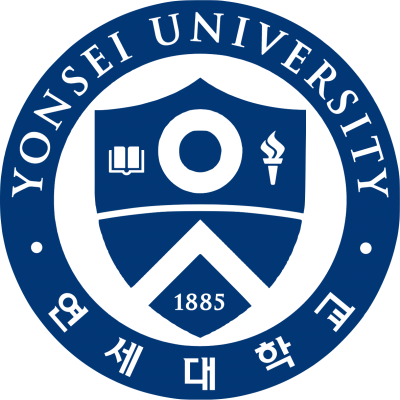Panel 1: How Megatrends Drive Innovations in Consumer Communications Technology
Date: Monday, 09 January 2023
Time: 15:00-16:30
Room: Twilight / 3rd Floor
External factors unrelated to technology that include a global pandemic and a war have been disruptive to technology. As a result, the world continues to evolve and reinvent itself through technology. Technology is a key enabler in driving this global transformation especially with Megatrends
Megatrends coalesce around multiple trends, last for a long time and have broad impacts not just on technology, but to business, society, and the environment. Simply put, Megatrends impact all aspects of humanity. This panel of technical experts will cover the key Megatrends of interest to attendees of IEEE CCNC, emphasizing their practical applications and implementations. The speakers will share their observations and experiences on the state-of-the art and future direction of consumer technologies.
Format: Participate in a live discussion with a panel of industry experts from several distinct fields who will provide their perspectives, observations, and predictions of the future.
Session Outline (Total Time is 1.5 hours)
- Tom Coughlin, Coughlin Associates
- Dejan Milojicic, HPE
- Nicholas Napp, Xmark Labs
- Jeewika Ranaweera, Oracle
- Moderated by Kathy Grise, IEEE
- Organized by Kathy Grise and Doug Zuckerman
Biographies
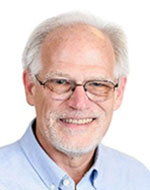 Tom Coughlin
Tom Coughlin
Tom Coughlin, President, Coughlin Associates is a digital storage analyst and business and technology consultant. He has over 37 years in the data storage industry with engineering and management positions at several companies. Coughlin Associates consults, publishes books and market and technology reports (including The Media and Entertainment Storage Report), and puts on digital storage-oriented events. He is a regular storage and memory contributor for forbes.com and M&E organization websites. He is an IEEE Fellow, President of IEEE-USA and is active with SNIA and SMPTE.
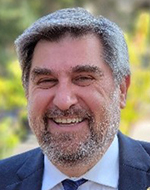 Dejan Milojicic
Dejan Milojicic
Dejan Milojicic is a distinguished technologist at Hewlett Packard Labs, Palo Alto, CA [1998-present]. Previously, he worked in the OSF Research Institute, Cambridge, MA [1994-1998] and Institute “Mihajlo Pupin”, Belgrade, Serbia [1983-1991]. He received his PhD from the University of Kaiserslautern, Germany (1993); and his MSc/BSc from Belgrade University, Serbia (1983/86). His research interests include systems software, distributed computing, systems management, and HPC. Dejan has over 200 papers, 2 books and 79 patents. Dejan is an IEEE Fellow (2010), ACM Distinguished Engineer (2008), and HKN and USENIX member. Dejan was on 8 PhD thesis committees, and he mentored over 50 interns. Dejan was president of the IEEE Computer Society (2014), IEEE presidential candidate in 2019, editor-in-chief of IEEE Computing Now (2008-2012) and IEEE Distributed Systems Online (2008-2009) and he has served on many editorial boards and TPCs. Most recently he co-founded workshop on Programming Environments for Heterogeneous Computing at SC’2021. Dejan led large industry-government-university collaborations, such as Open Cirrus (2007-2011) and New Operating System (2014-2017).
 Nicholas Napp
Nicholas Napp
Nicholas Napp, Founder, CEO Xmark Labs. As a co-founder of Xmark Labs, Nicholas is focused on the role of Virtual & Augmented Reality and Blockchain technologies in enterprise digital transformation. He enjoys working at the intersection of strategy, technology and corporate narrative to accelerate business growth. Nicholas has been working with VR and AR systems since the 1990s when his team at Rainbow Studios pioneered the use of VR in 3D animation production. He has launched over 40 products across a wide range of consumer and enterprise markets. Nicholas is also Chairman of the Board at FabNewport, a non-profit provider of maker-centered learning programs and services for middle school and older students.
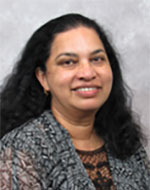 Jeewika Ranaweera
Jeewika Ranaweera
Jeewika Ranaweera is a principal hardware engineer working on high-speed microprocessors at Oracle. She received her Bachelor’s in CSE from ISPJAE in Havana, Cuba and her Master’s and PhD degrees in ECE from the University Of Toronto, Canada. She is an IEEE Senior Member and a steering committee member for IEEE Future Directions and Digital Reality Initiatives.
Jeewika authored an eBook about her engineering journey for IEEE Women in Engineering to inspire others to follow STEM careers and illustrated the 1stchildren’s book published by IEEE. Recently she delivered a Keynote on “Successful Leadership Development in STEAM Careers,” at the IEEE LAEDC 2020, WIE/YP Networking session in Costa Rica. She is passionate about delivering talks on Quantum Computing, and the need to have a diverse environment to eliminate “Bias in AI” that discriminates minority. She also shared her unique insight via a podcast on areas where immersive technologies benefit humanity. She has been a speaker at the IEEE LAEDC, Drive World Conference, ChipChat, IEEE VTS, IEEE CCNC, AWE, IEEE TTM, Grace Hopper Conference, IEEE WIC Summit, and FB Developer Circle. She has also been a Track chair for the IEEE WIE ILC.
She volunteers as a female technologist through the Oracle Education Foundation. As a Program Evaluator for ABET, she helps guide the content, quality and delivery of ECE degree programs around the world.
She has authored and co-authored many papers published in technical journals, or presented at international conferences. Jeewika holds five US Patents.
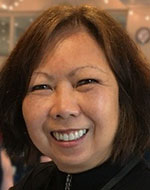 Kathy Grise
Kathy Grise
Kathy Grise, Senior Program Director - - IEEE Future Directions, supports new technology initiatives, is the IEEE staff program director for the Digital Reality Initiative, the IEEE Technology Navigator AI, Future Directions and Industry Advisory Board Committees, and manages the digital presence team for Future Directions. Previous initiatives included big data and cloud computing. Ms. Grise served as the Technical Program Chair of the IEEE COMPSAC 2022 Symposium - Data Sciences, Analytics, & Technologies (DSAT). Prior to joining the IEEE staff, Ms. Grise held numerous positions at IBM, and most recently was a Senior Engineering Manager for Process Design Kit Enablement in the IBM Semiconductor Research and Development Center. Ms. Grise led the overall IT infrastructure implementation, and software development in support of semiconductor device modeling verification, packaging, and delivery; device measurement and characterization data collection and management, and automation for device modeling engineers. Ms. Grise is a graduate of Washington and Jefferson College, and an IEEE Senior member.
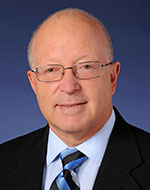 Douglas N. Zuckerman
Douglas N. Zuckerman
An active volunteer for more than 30 years, Doug Zuckerman is a past IEEE Division III (Communications Technology) Director, was 2008-2009 President of the IEEE Communications Society, and previously held leadership positions in conferences, publications and membership development. He received his B.S., M.S. and Eng.Sc.D degrees from Columbia University, USA, and is an IEEE Life Fellow.
His professional experience, mainly at Bell Labs and Telcordia Technologies, USA, spans the operations, management and engineering of emerging communications technologies, networks and applications. His work heavily influenced early standards for management of telecommunications networks. Currently, he is a consulting employee at Peraton Labs. Presently semiretired, he is still very active in IEEE activities, including the IEEE Industry Engagement Committee and the IEEE Future Directions Committee, where he co-chairs its Public Safety Technology initiative.
Panel 2: Role of Machine Learning in Next Generation Wireless Networks
Date: Tuesday, 10 January 2023
Time: 14:30-16:00
Room: Twilight / 3rd Floor
Traditional communication and networked systems have been developed from mathematical models of the wireless channel and optimizing the network based on the model. Modern Machine Learning is fast changing this approach from theoretical models to data-driven models in every aspect of communication and networking. This panel is going to address how machine learning can help to transform the design of next generation wireless communication networks. The experts in this domain will discuss their vision for unifying different approaches in each layer of the network towards an intelligent future network. The speakers will also discuss the efforts required to make these models practical, implementable and reliable.
Session Outline (Total Time is 1.5 hours)
- Timothy O’Shea, DeepSig Inc.
- Vanitha Kumar, Qualcomm
- Ahmed Alkhateeb, Arizona State University
- Ioannis Mavromatis, Toshiba Europe Ltd
- Jithin Jagannath, ANDRO Computational Solutions
- Moderated by Timothy O’Shea
Biographies
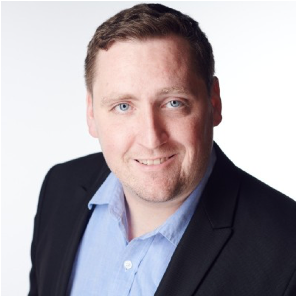 Timothy O’Shea
Timothy O’Shea
Tim O’Shea is the CTO and Co-Founder at DeepSig Inc and a Research Assistant Professor at Virginia Tech in Arlington, VA. He is focused on building machine learning and AI-Native wireless baseband processing capabilities to enhance the spectral and energy performance of 5G, 5G-Advanced, and 6G wireless air interfaces, and leveraging AI-Driven spectral and spatial channel awareness and sensing to optimize multi-user and multi-access next generation wireless systems. Previously he worked with wireless startups Hawkeye 360 and Federated Wireless in seed stage and held engineering R&D positions with both the US DOD and with Cisco Systems. He is the author of over 50 peer reviewed works and patents in the machine learning for communications space, and is involved in IEEE COMSOC, IEEE MLC ETI, Next-G Alliance, and OpenRAN efforts to accelerate AI driven communications systems and their adoption within next generation RAN and Open-vRAN.
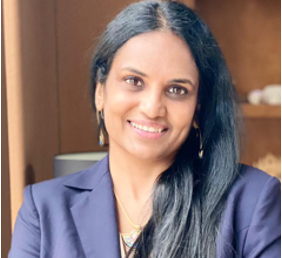 Vanitha Kumar
Vanitha Kumar
Vanitha Kumar is a Senior Vice President of Software Engineering at Qualcomm Technologies Incorporated. Vanitha has 25 years of experience in the wireless telecommunications industry and in embedded software architecture, design, and development. In her current role at Qualcomm, Vanitha leads the modem SW technology team which includes 5G, 4G-LTE, Cellular IoT,RF and automotive technologies across multiple global locations. She also has vast experience leading multiple generation of cellular modem chipsets and working closely with customers, vendors and cellular carriers to launch many devices and technologies. She has about ~250 granted patents in the US & abroad. Vanitha holds a Master of Science degree in Electrical Engineering from Northeastern University, and a Bachelor of Electronics & Communication Engineering degree from PSG College of Technology, India.
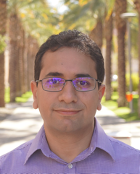 Ahmed Alkhateeb
Ahmed Alkhateeb
Ahmed Alkhateeb received his B.S. and M.S. degrees in Electrical Engineering from Cairo University, Egypt, in 2008 and 2012, and his Ph.D. degree in Electrical Engineering from The University of Texas at Austin, USA, in August 2016. In Sept. 2016- Dec. 2017, he was a Wireless Communications Researcher at the Connectivity Lab, Facebook, in Menlo Park, CA. He joined Arizona State University (ASU) in Spring 2018, where he is currently an Assistant Professor in the School of Electrical, Computer, and Energy Engineering. His research interests are in the broad areas of wireless communications, communication theory, signal processing, machine learning, and applied math. Dr. Alkhateeb is the recipient of the 2012 MCD Fellowship from The University of Texas at Austin, the 2016 IEEE Signal Processing Society Young Author Best Paper Award for his work on hybrid precoding and channel estimation in millimeter-wave communication systems, and the NSF CAREER Award in 2021.
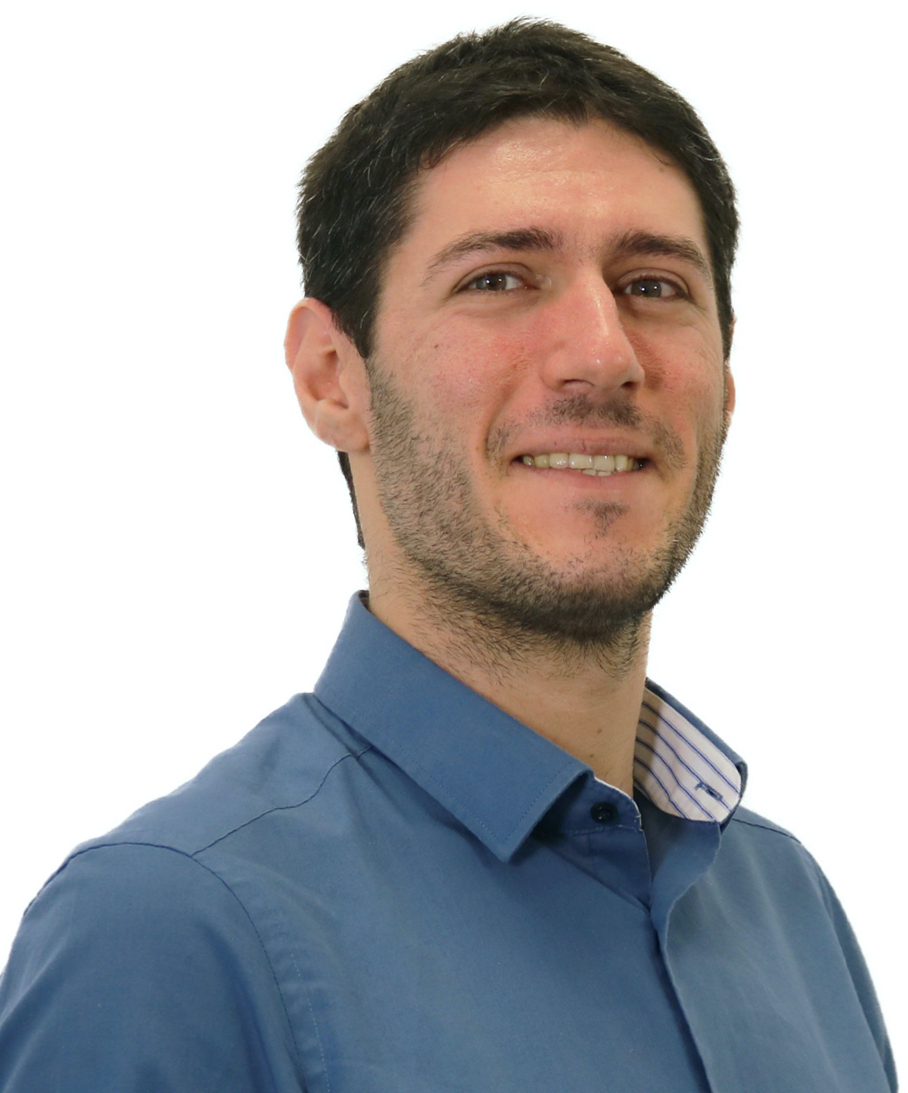 Ioannis Mavromatis
Ioannis Mavromatis
Ioannis Mavromatis is a Principal Research Engineer at Bristol Research and Innovation Laboratory of Toshiba Europe Ltd., having extensive experience in testbeds, wireless networking, software architecture and development, and digital twins. He is the lead backend architect of the award-winning UMBRELLA framework, supporting various use-cases and testbeds in the northern part of Bristol. In addition, he has worked on multiple projects targeting cybersecure communications for IoT ecosystems and sustainable machine and federated learning. Dr Mavromatis received his BSc in “Computer Science” from ATEITH Thessaloniki, Greece, in 2012. He later joined the University of Bristol, UK and steered his focus on wireless communications receiving an MSc in “Wireless Communications and Signal Processing” and a PhD in “5G Connected and Automated Vehicles” in 2014 and 2018, respectively. His research interests span the broad areas of Cloud-native Computing, Cybersecurity, Machine Learning & Federated Learning, Sustainability, and Wireless Communications. Dr Mavromatis is the recipient of the IEEE Popularity award from IEEE VNC 2018 for his work on scaling wireless simulation frameworks and the IEEE Best Paper Award of VTC-Spring 2019 for his work on fog computing infrastructures for future Intelligent Transportation Systems (ITSs).
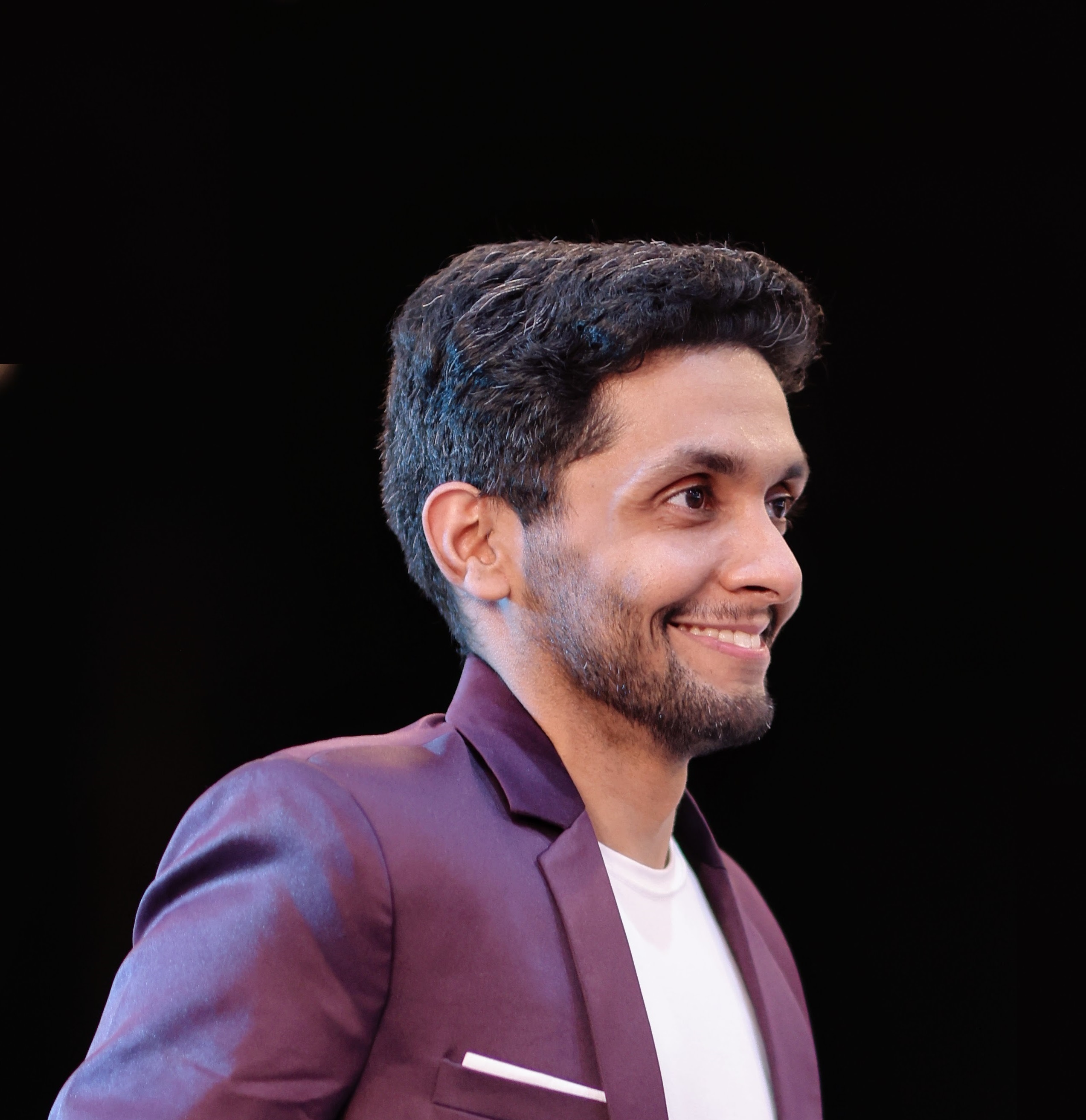 Jithin Jagannath
Jithin Jagannath
Jithin Jagannath is the Chief Scientist of Technology and the Founding Director of the Marconi-Rosenblatt AI/ML Innovation Lab at ANDRO Computational Solutions. He is also the Adjunct Assistant Professor at the University at Buffalo, State University of New York. He received his Ph.D. degree from Northeastern University. Dr. Jagannath heads several of the ANDRO's research and development projects in the field of 5G and beyond, machine learning for wireless, advanced signal intelligence, Internet-of-Things, and UAV automation. These projects are sponsored by several customers including the U.S. Army, U.S. Navy, U.S. SOCOM, DHS, and AFSOR. Dr. Jagannath has been invited to give various talks including Keynotes on the topic of machine learning and Beyond 5G wireless communication. He is an IEEE Senior member and serves as an IEEE SPS Applied Signal Processing Systems Technical Committee member. Dr. Jagannath was the recipient of 2021 IEEE Region 1 Technological Innovation Award with the citation, "For innovative contributions in machine learning techniques for the wireless domain". He is also the recipient of the AFCEA International Meritorious Rising Star Award for achievement in Engineering and AFCEA 40 Under 40. Dr. Jagannath's recent research has led to 14 patents (granted and pending) and over 40 peer-reviewed publications which include the recipient of best paper award.



